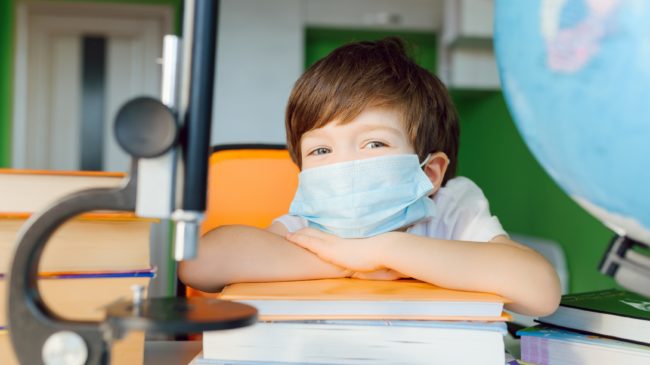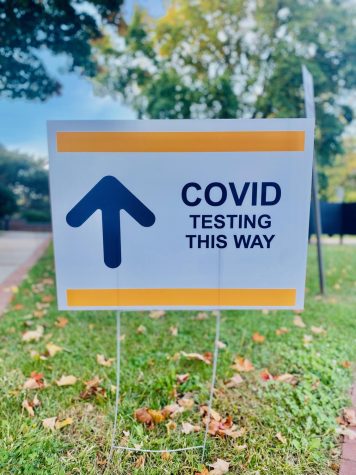Taken For Granted: The Education System and The Pandemic
No other event has raised awareness about the real importance of the education system more than the COVID 19 pandemic.
An institution that was generally taken for granted, the education system now stands at an all time high need.
As the country moves forward in trying to rebuild from the pandemic, it becomes clearer and clearer how much damage it has caused.
The pandemic was a disaster for everyone, but the education system took more of the hits that we are promised to see in the long run.
With no warning, adults and children were thrust out of the everyday system and forced to adapt to a new way of learning. However, with no proper plan b in place, the forced experiments that played out caused more damage than good.
Research has shown that K-12 school students have lost crucial learning time in their education causing lasting effects.
According to Pew Research, 61 percent of U.S. parents say the pandemic had a negative effect on children, with 44 percent saying these effects are still seen today.
Emotional challenges also presented themselves, with 48 percent of parents saying their children have had negative emotions due to the first year of the pandemic.
Kindergarten through 12th grade are pivotal years in a child’s life, with kindergarten to third being the most important in terms of development. There, children learn fundamental skills such as writing, reading, and basic math. Primary school is important not only for the process of basic skills, but also social and emotional skills such as how to interact with and treat others.
This time is critical, not only for learning but also for identifying disabilities. Children are typically diagnosed with a disability after being in school for about three years. These are the years when school officials can determine when a child has any learning or behavior disabilities and provide the extra assistance needed.
This importance is reflected in the No Child Left Behind Act in 2001, a United States law that doubled down on the Elementary and Secondary Education Act and ensured the education of all students including those with learning disadvantages.
Research done by the U.S. News and World Report shows that “average annual learning gains for children in grades K-2 are dramatically greater than those for subsequent years of school.”
Although it’s statistically clear that a substantial amount of learning was lost during the early stages of the pandemic, some parents are still reluctant to agree with this.
Race and ethnicity play a huge role in this, diversifying numbers heavily. Studies show that a substantial amount of learning loss fell on black and Hispanic children. However, it is white parents who are more inclined to say this, rallying at 66 percent with black and Asian parents at 50 percent and Hispanic parents at 55 percent.
Financial status, like always, is another critical factor. A lower percentage of parents belonging to middle and low-income status say their children’s education was affected compared to parents of high-income status. Nearly 68 percent of upper-income parents say the pandemic had a negative effect, while middle and lower class fall at 63 percent and 54 percent respectively.
However, despite the opinions of parents, other statistics disagree. Research done at Harvard University concludes that the achievement rate for K-12 schools has lowered significantly.
In addition to loss learning time, many other support systems were taken when the pandemic hit.
Most schools have a free breakfast and lunch system in place for their students. In NYC alone, the largest school district in the country, all 1.1 million students have access to free food, with 71 percent partaking in this.
Schools also offer important structures like counseling, medical care, and even shelter. Conveniently, other studies show that mental health disorders such as depression and anxiety in children have reached new highs. In a survey done by Pew Research in 2021, 44 percent of high schools reported that they’ve felt “sad or hopeless almost every day for two or more weeks in a row.”
When schools went offline early in 2020, so did many of these support systems.
The pandemic forced us to work together to create a new way of learning. But it also forced us to adapt in ways we weren’t ready for. Unfortunately, we are still seeing these effects today. The question of when will we finally catch up is starting to seem unanswerable.

Diannah Plaisir is currently a senior at Mercy College, pursuing a degree in Media/Communications. Having decided that she was going to be a journalist...













